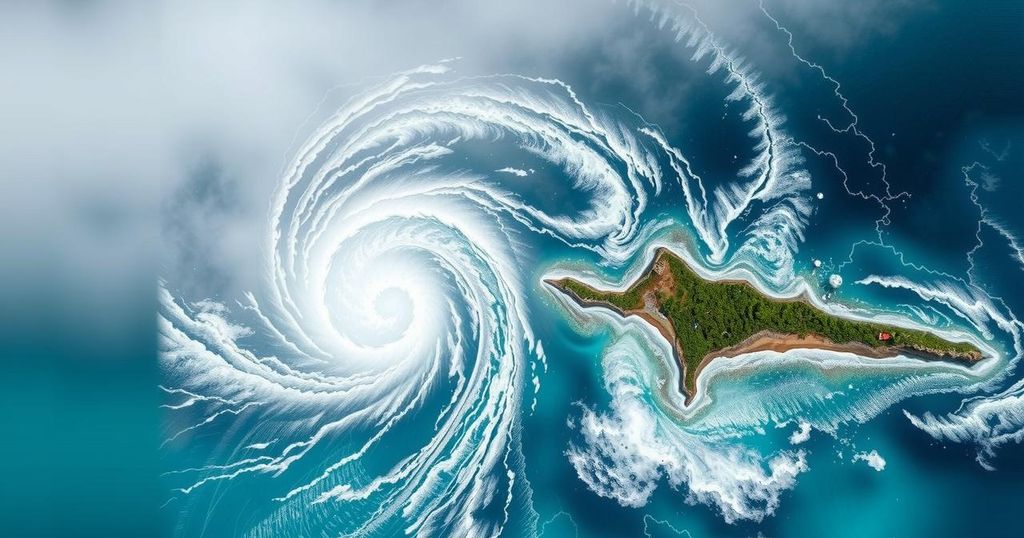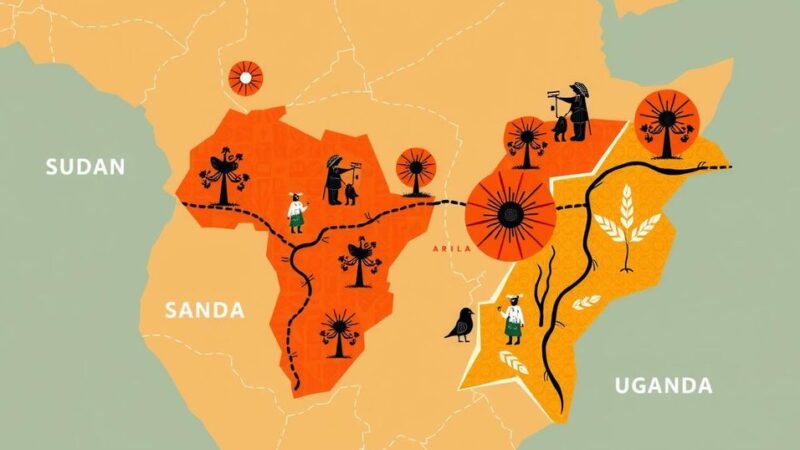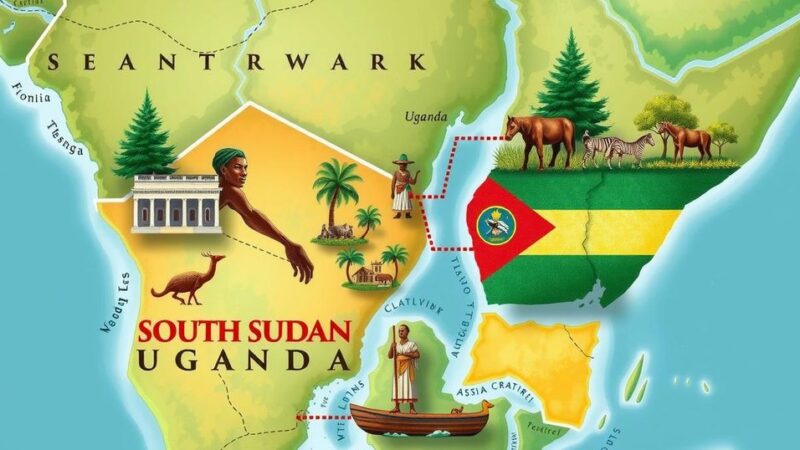Mayotte faced a new tropical storm, Dikeledi, just weeks after Cyclone Chido devastated the islands, leading to casualties and significant infrastructural damage. Residents were advised to remain indoors as flooding and landslide risks were heightened. Emergency shelters were reopened, and the French government mobilized more than 4,000 personnel to assist and ensure safety amid this ongoing crisis.
The French territory of Mayotte was once again battered by a severe tropical storm, Dikeledi, on Sunday, following the devastation caused by Cyclone Chido just weeks prior. This cyclone was the worst to hit the islands in nearly a century, resulting in significant destruction, numerous fatalities, and an ongoing recovery effort. The residents were urged by officials to stay indoors and secure their provisions as Dikeledi approached, bringing with it heavy rains and strong winds, further complicating recovery efforts in the impoverished territory. The storm, having weakened from its cyclone status before reaching Mayotte, raised concerns of potential flooding and landslides, prompting authorities to issue a red alert and reopen cyclone shelters for affected populations.
Mayotte is an archipelago located in the Indian Ocean, off the east coast of Africa, and is recognized as the poorest department within the French Republic and the European Union. It has been severely impacted by Cyclone Chido, which led to at least 39 confirmed deaths, over 200 missing individuals, and thousands injured. The region is currently in its cyclone season (November to April), with intense storm activity posing a continuous threat to the local population. Recent events have highlighted the vulnerabilities faced by the island’s residents, particularly undocumented migrants who constitute a significant portion of the population.
The situation in Mayotte remains critical as it grapples with the aftermath of Cyclone Chido and faces additional threats from Tropical Storm Dikeledi. The vulnerability of the local population has been brought to the forefront, revealing issues related to emergency preparedness and the impacts of climate change on the region. Authorities are mobilizing resources to manage the ongoing crisis while the community calls for greater attention from the French government to address their needs and improve resilience against such natural disasters.
Original Source: www.durangoherald.com






